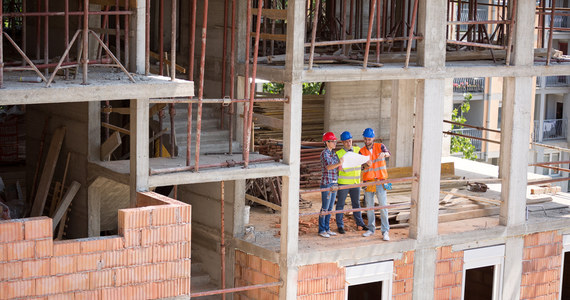The bill on housing cooperatives, awaited by NGOs and activists, was consulted at the end of July. This is the last element of the so-called housing package of the Ministry of Development, Labor and Technology.
As the promoter of the idea of cooperatives, the senator of the Civic Coalition, the former director of the Municipal Housing Resource Plant in Sosnowiec, Joanna Sekuła explains, cooperatives are an institution for those who do not want or cannot afford their own home, but want to choose their closest neighbors. – In this case, we have an influence on who we live with. When buying a flat from a developer or on the secondary market, or becoming a member of a housing cooperative or TBS, we do not have such an influence – he notes.
– The possibility of implementing the idea of joint, planned residence has been the subject of my research for years. A few years ago, architecture students completed excellent diploma projects showing the possibilities of adapting old tenement houses for such purposes – says Sekuła. At the beginning of 2019, it organized in Sosnowiec, together with representatives of city movements, architects, the government and local government, a conference “From cooperatives to co-housing”, thus starting activities to promote the idea of cooperatives and a draft law on this matter. Originally it was a very simple, only three-page project.
– After more than two years, we have finally got the bill sent for consultation. It is true that it is no longer three pages, but 13, but has a much wider range of solutions than the original proposal – emphasizes Sekuła.
And he explains that the law on this matter is needed because it will allow for the structuring of cooperatives. They are to be established under a cooperative agreement or as civil partnerships. Thanks to this, they will be able to be legal entities and obtain financing – they will become a partner for banks, so they will be able to take out loans for investments.
According to Sekuła, it is very beneficial – provided for in the project – that cooperatives can obtain funding from Bank Gospodarstwa Krajowego. This is due to the extension to the cooperatives of the act on financial support for the creation of residential premises for rent (i.e. Journal of Laws of 2020, item 508). Until now, such support may be used by broadly understood self-government entities. Co-financing from BGK for the construction of new apartments currently amounts to 35%. investment value. – So it would be a significant support for cooperatives – he assesses.
As he adds, cooperatives were also entered into the Revitalization Act (Journal of Laws of 2015, item 1777). – This will make it possible to apply for co-financing in a situation where a cooperative acquires not land, but a building for revitalization. If it is additionally located in a special revitalization zone, it will give the opportunity to obtain significant funds – describes the senator.
Przemysław Dziąg, legal advisor of the Polish Association of Developers, points out another beneficial solution. – This project is similar to the law “premises for land”, assuming that the price of the land may include some premises that the cooperative will give to the commune. The significant difference, however, is that the premises are to be sold at the market price, and in the case of the “premises for land” act, according to the indicators of the reconstruction metro system, which is much cheaper, the lawyer points out.
The cooperative, like the newly established cooperative, will be able to preferentially purchase land from the commune. According to attorney-at-law Piotr Jarzyński, partner at Kancelaria Prawna Jarzyński & Wspólnicy, this means support for the creation of new housing cooperatives. However, the cooperatives will not receive such a bonus for the next investment. – The result will therefore be the budding of cooperatives that will be created for the implementation of one investment – predicts Piotr Jarzyński.
As Senator Sekuła explains, the regulations regarding cooperatives were included in the draft, because in the meantime it turned out that if there were no them and only cooperatives would be entitled to purchase land on preferential terms from the commune, we would have to deal with inequality of rights. – That is why cooperatives and new cooperatives that do not have any resources have been equated – he explains.
However, experts also have comments on the project. – The basic thing is that the regulations concerning the minimum content of the contract are too general. Meanwhile, if the act does not contain any particulars regarding, inter alia, accounting or investment settlement, everyone will do it at their own discretion, which creates a risk for the members of the cooperative – assesses attorney Jarzyński.
As he explains, the contract is to protect them in the event of a conflict or situations such as investment delay or unreliability of the contractor, which extend the entire process and increase costs.
– The draft indicates that the cooperative agreement will be concluded in the form of a notarial deed. This is to result in notarial control over the provisions of the contract. However, I wonder how, with such general provisions of the draft agreement, a notary should decide whether something is lawful or unlawful or, for example, the principle of freedom of contract, Jarzyński wonders. As a result, in his opinion, notaries will be burdened with analyzing these issues. It also draws attention to the fact that the draft act states that disclosing in the land and mortgage registers the conditions of the discount, the right of redemption and the right of first refusal is not to be obligatory, but made upon request. Therefore, the notary will not be obliged to prepare the application.
Przemysław Dziąg has a similar opinion on the general nature of the regulations concerning the contract. – The content of the agreement regarding the establishment of the cooperative should certainly be specified in the project. Liabilities; what who has to do; deadlines; the penalties in the current version are too general, he lists.
He also points out that it is a security in case something goes wrong, the investment is prolonged, cooperative members start to have a divergent approach to investment, implementation prices increase, etc. – The risk of implementing the maxim should be limited as much as possible: the swallows said that companies are not good – postulates the legal advisor of the Polish Association of Developers.
According to Dziga, it can be expected that it will be rather a niche solution. – Firstly, because land prices have been growing very quickly for several years and are not available to the average Kowalski, secondly because if someone has money, they usually prefer to build a single-family house themselves, and not enter into an agreement with other investors for this purpose and, moreover, with the commune – argues the lawyer.
Although, as he notes, the project assumes that 20-30 percent can be saved in this way. costs in relation to the purchase of premises from the developer, “but on the other hand, we have many undetectable costs, such as time spent or commitment to the investment process, which today looks like an obstacle course”.
Joanna Sekuła admits that a lot of promotion of these solutions will certainly be needed, including in municipalities. – This is another initiative – after SIMs and social rental agencies – which opens up new opportunities for municipalities to meet the needs of their residents. I will definitely get involved in popularizing cooperatives, because I believe that it is a fantastic idea, giving the opportunity to create harmonious local communities – concludes the senator.
We have been promoting the cooperative model for years – Katarzyna Przybylska Senior Advocacy Manager, Habitat for Humanity Poland Foundation
Cooperatives will be a good solution for people who want to live in conditions that meet their needs, without incurring the market costs of buying an apartment. However, it will be a niche solution. Housing cooperatives will not solve the problem of the housing deficit in Poland, but the introduction of regulations (and enabling cooperatives to be supported by the commune) will be a significant help for people who want to build apartments together.
However, the risk should be considered, inter alia, lack of specialists (architects, project managers, lawyers) who know the process of cooperation with the cooperative and difficulties in obtaining financing. It is therefore worth providing support in these areas (specialist services, counseling at the local government level and banking services).
The project provides for the solution proposed by us, i.e. the possibility of settling the price for the property purchased from the commune by handing it over or renting apartments. These are valuable solutions that allow to reduce the initial financial burden of cooperatives, and at the same time increase the municipal housing stock.
Legislative stage: Project in consultation
Sonia Sobczyk-Grygiel
4.08.2021
Dziennik Gazeta Prawna


